What are the pros and cons of solar panels? There is no doubt that installing solar panels is a fantastic alternative for generating clean energy and saving money in the long term. Also, solar energy, apart from being beneficial for the environment, is infinite, making it one of the most crucial energy sources today. However, like anything else, despite its multiple benefits, they also present some drawbacks. If you are considering installing solar panels in your home or business, we outline the pros and cons of solar panels below, to help you make a more informed decision.
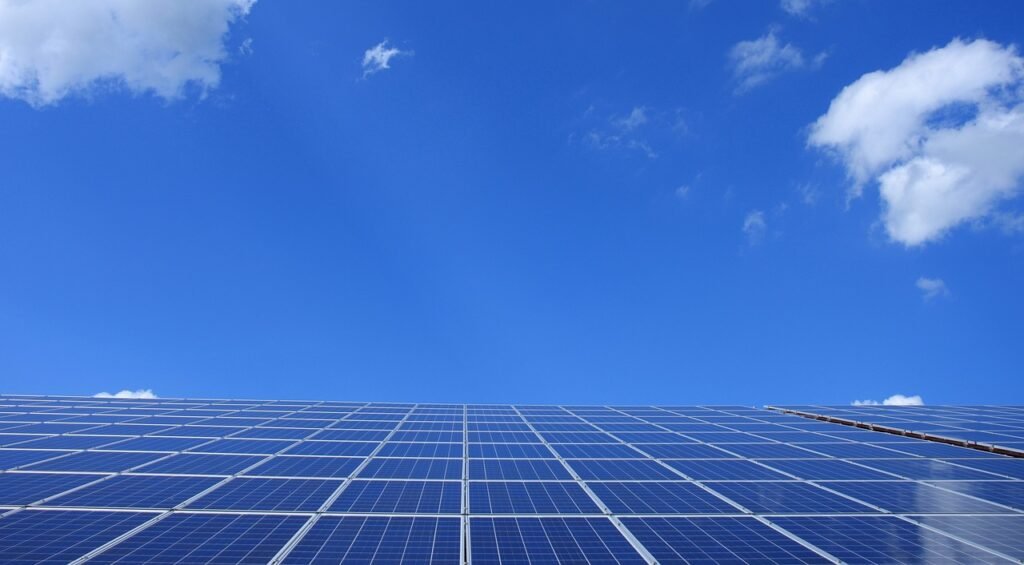
Advantages of Solar Panels:
Energy Saving
Solar panels involve a significant initial investment, but you can achieve substantial energy savings quickly, resulting in a much cheaper electricity bill. Moreover, you can benefit from compensation for surpluses by receiving discounts on your bill when excess energy is dumped into the electrical grid.
Aid and Subsidies
Financial aid for photovoltaic installations is increasingly available from the European Union, national governments, and autonomous communities. The year 2023 has seen a notable push for the installation of such equipment, thanks to numerous aids and subsidies for solar panels. In short, you will get considerable savings on electricity bills and contribute to environmental care.
Zero Polluting Emissions
Solar panels produce no pollution, neither directly nor indirectly, unlike some other energy sources. This absence of greenhouse gas emissions contributes to the fight against global warming. Also, it reduces the carbon footprint, ultimately helping to preserve the planet.
Sustainable Renewable Energy
Solar energy is sustainable and renewable, tapping into the infinite source of energy provided by the sun. This ensures a positive impact on future generations, as the sun is expected to continue generating energy for at least another 5 billion years.
Global Availability
The sun is available worldwide, making this type of energy accessible without exporting. In areas where alternative options are limited, solar panels can operate independently in remote regions, enabling both individual and collective energy generation.
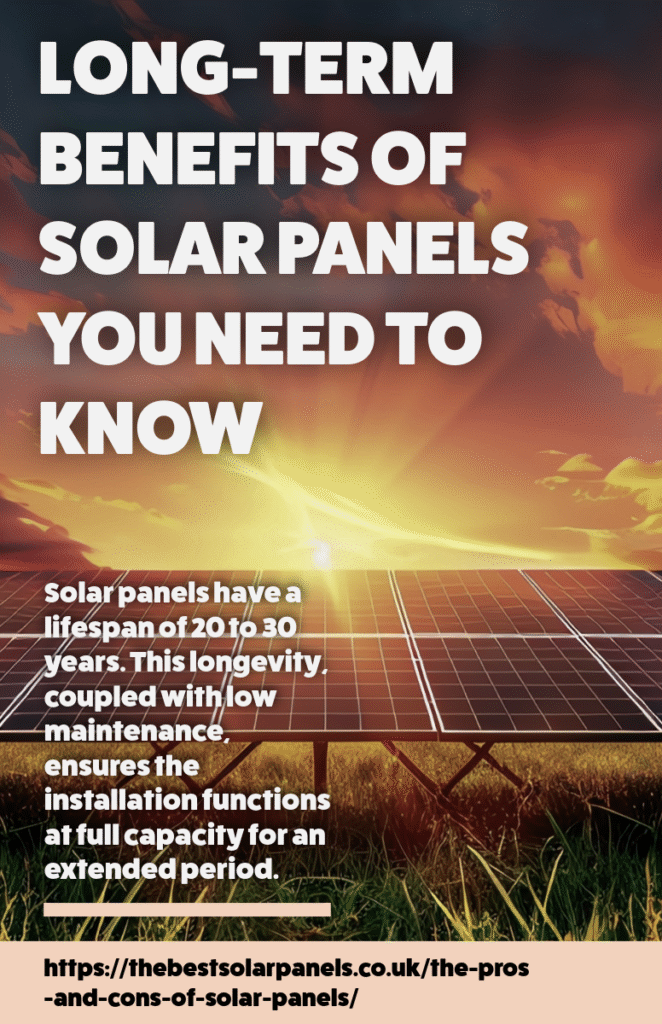
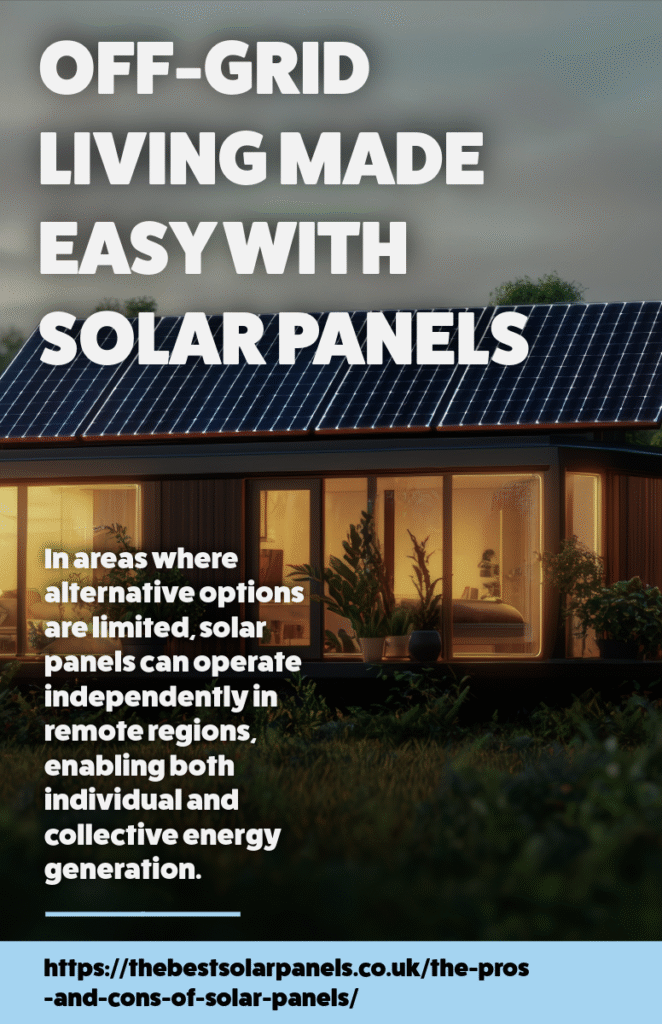
Noise-Free Operation
Unlike conventional electric power generators, solar panels don’t produce any noise during operation, providing a quiet and peaceful energy generation solution.
Compatibility with Other Energy Sources
Solar energy is compatible with other types of energy. Many homes have dual installations to ensure that conventional electrical energy works when solar energy is unavailable, facilitating a smooth and progressive transition.
Low Maintenance Requirements
Solar panels require minimal cleaning and maintenance, with a life cycle ranging between 20 and 30 years. This longevity, coupled with low maintenance needs, ensures the installation continues to function at full capacity for an extended period.
Increased Property Value
Installing solar panels in your home can enhance its value, leading to a better selling or rental price. The same applies to business premises or warehouses.
Positive Economic Impact
In the long term, photovoltaic installations offer substantial economic savings, given their extended useful life and the benefits that offset the initial investment. Additionally, they contribute to job creation and local wealth, improving people’s lives in the present and future.
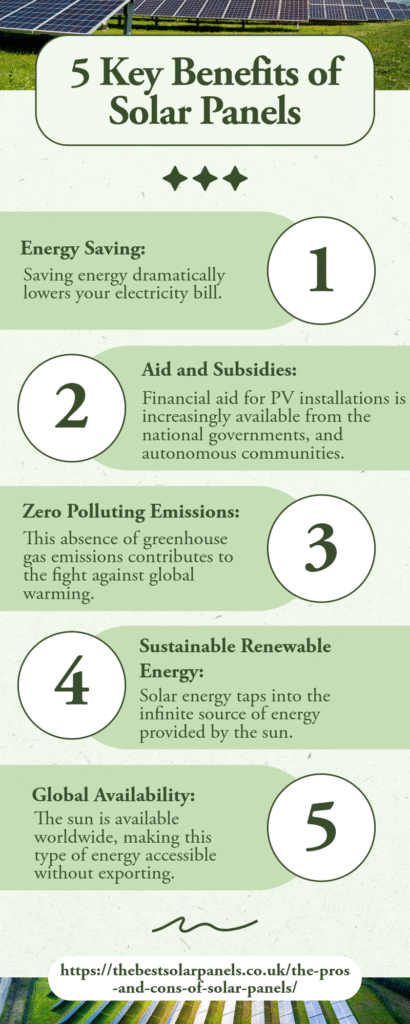
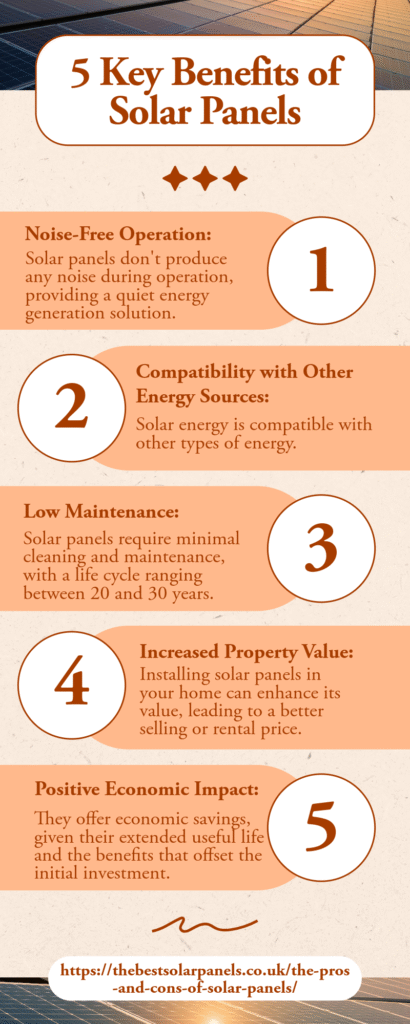
Disadvantages of Solar Energy:
While solar energy has numerous pros, it is advisable to be aware of some cons. Understanding these drawbacks helps assess whether solar energy is the most suitable option for your business or home based on its location.
Requires an Initial Investment
To install a photovoltaic system, you will need a substantial initial investment, ranging between 600 and 800 euros per square meter of the panel. Although there may be significant variations among different companies, it’s crucial to consider this guidance to prevent unpleasant surprises.
Climate Dependence
This represents a relative disadvantage since we can predict or average the daily and annual hours of sunshine in our area. However, if weather conditions in the region are unpredictable and there is limited storage capacity, solar energy may not be the optimal choice.
Limited Power
Solar panels come with limited power, meaning that in many cases, photovoltaic energy alone may not suffice to meet the home’s needs. It’s essential to note that a small house in a temperate zone typically requires no less than 7 kW per day, and a standard solar panel generates no more than 250 W.
Space and location for installation are crucial
Typically, solar panels are situated on the roof of a house, but this isn’t always possible. Occasionally, because of the suboptimal orientation of the roof, alternative options such as ground installation or a pergola may need to be explored. However, these alternatives are not always practical.
Solar Panels Produce an Environmental Impact
Solar panels have a great visual impact on the landscape when they are used to produce electricity on a large scale since they occupy large areas. This impact is also visible on the roofs of buildings with panels installed, although to a lesser extent.
On the other hand, the panels are manufactured with materials that must be treated as hazardous waste at the end of their useful life, such as silicon or lead.
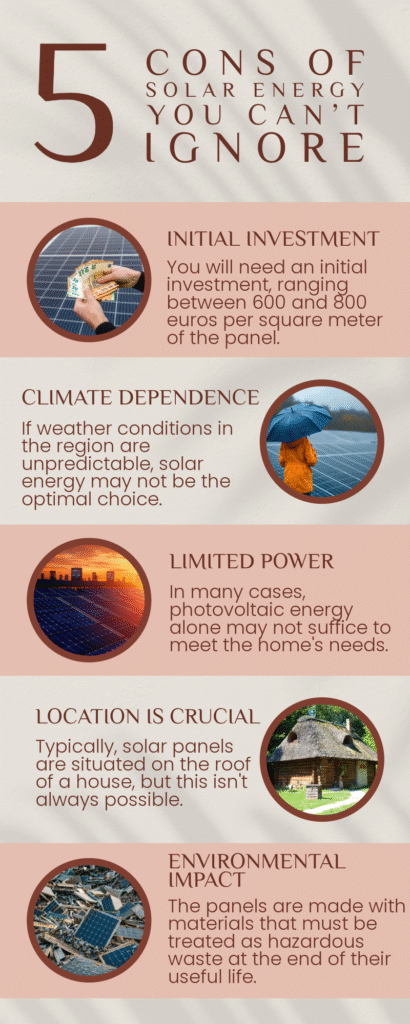
Summary of the Pros and Cons of Solar Panels
Pros
Cons
Conclusion
In short, solar panels offer a fantastic alternative for those seeking affordable, renewable energy from a long-lasting source. Understanding both the advantages and disadvantages of installing solar panels in your home will help you make an informed decision and avoid potential issues in the future. While there are numerous benefits, it’s crucial to carefully consider all factors to determine the profitability of the investment and identify the most suitable panel types for your specific case.
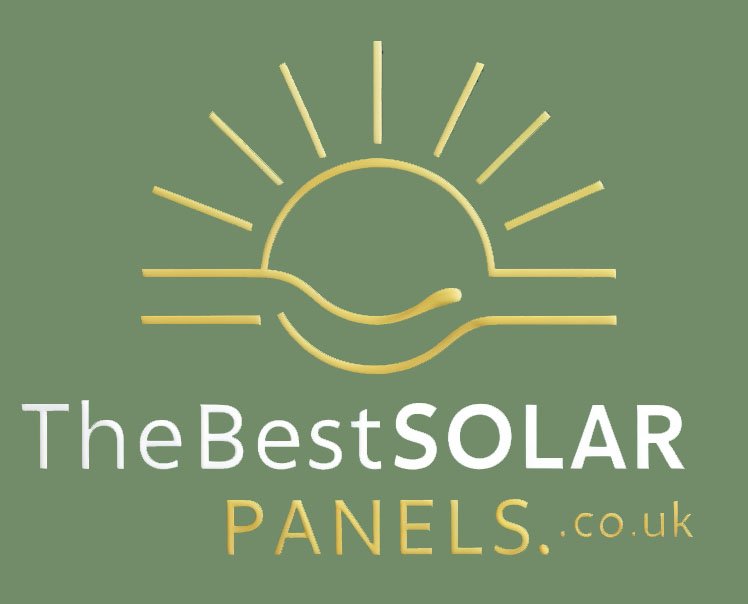


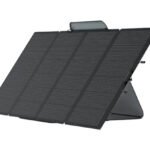
Leave a Reply